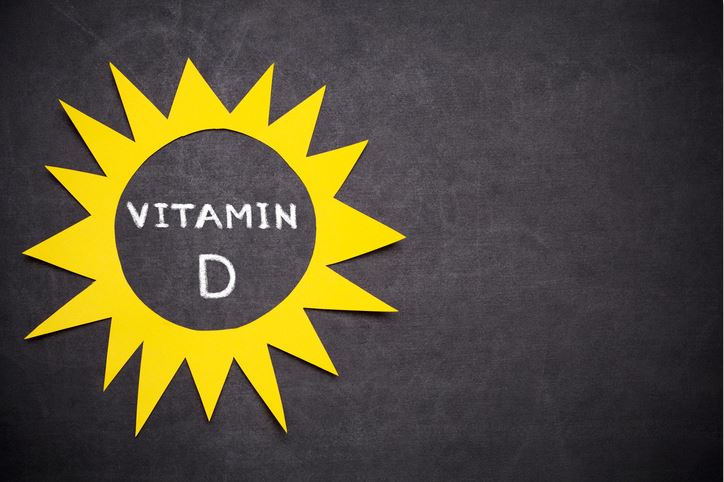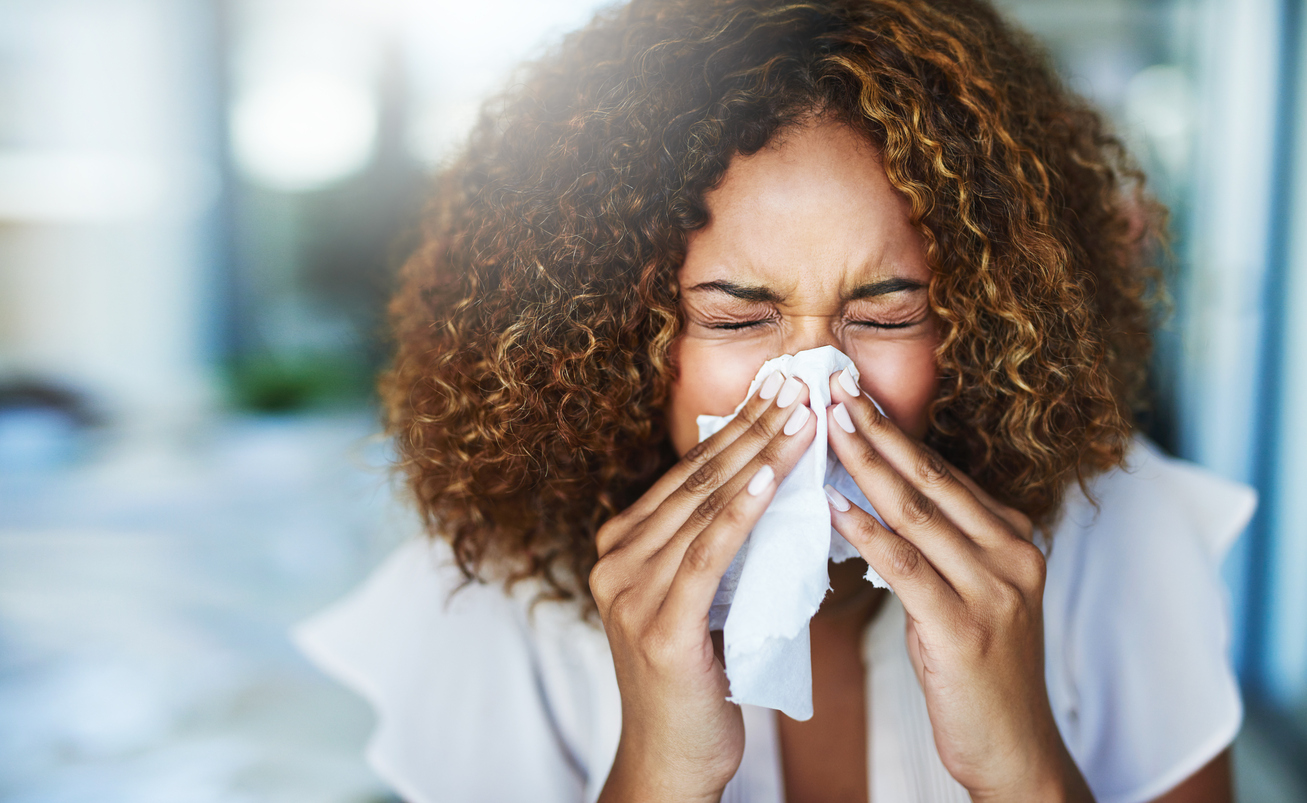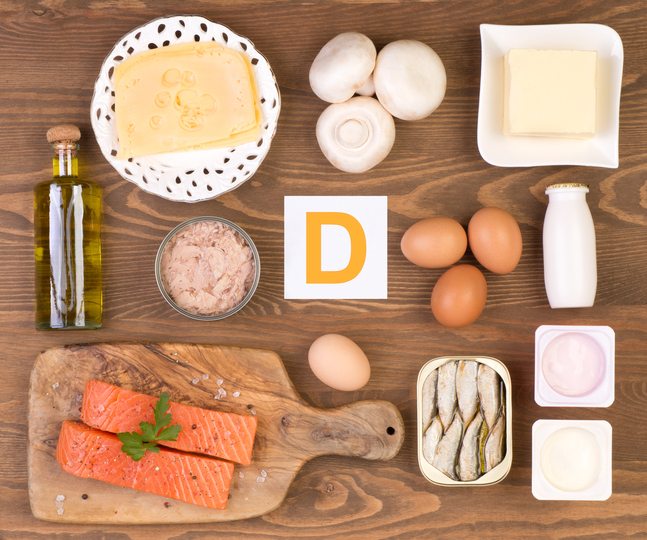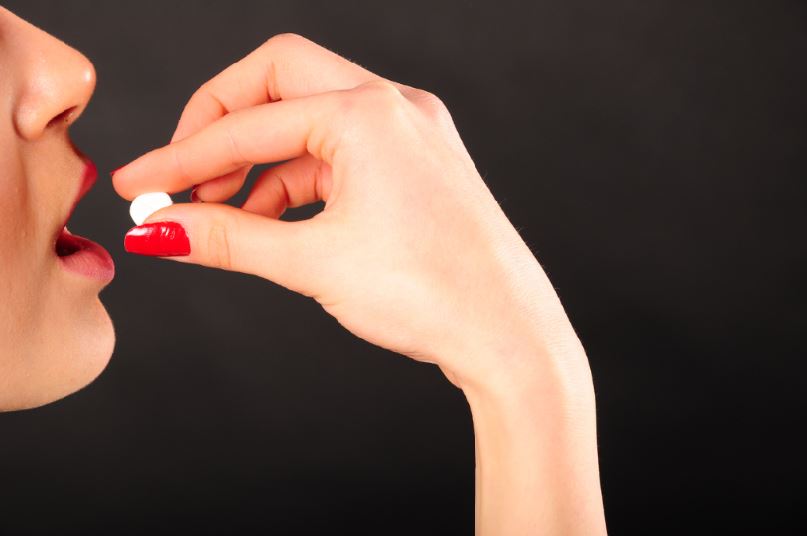Can vitamin D really help fight Covid-19? Expert adviser and nutritionist Angela Dowden reveals the truth behind the headlines, plus how you can get your daily dose
Vitamin D has emerged as one of the most commonly talked about vitamins of 2020, with recent studies highlighting its key role in supporting immune health as well as studies showing it may help to prevent your likelihood of catching Covid-19.
You may have seen the headlines about vitamin D and COVID-19 as a result of mounting evidence which has found that a deficiency can mean a person is more likely to catch coronavirus as a result or experience symptoms for longer.
One study which made the headlines recently was the Boston University Study which found that people with vitamin D deficiency have a 54 per cent higher COVID-19 positivity rate.
Patients older than 40 who had sufficient levels of vitamin D were more than 51 per cent less likely to die from the virus.
people with vitamin D deficiency have a 54 per cent higher COVID-19 positivity rate
Although more studies are required before conclusive evidence can be reached, what we do know is that vitamin D is good for immune health in general, and this is especially important to keep in mind during lockdown.
To most people, vitamin D is associated with the sun, hence it being referred to as the ‘sunshine vitamin’, which is great if you live in sunny climates. But in Britain, we’re less fortunate, especially in the winter months.
Due to the nature of lockdown, and it falling in winter, we’re spending a lot more time indoors than normal, so do try and take a lunchtime walk in daylight whenever possible and supplement every day.
HealthyDoesIt expert adviser and nutritionist Angela Dowden looks beyond the news stories, to give us the science behind this vitamin and why supplements are recommended.
What is vitamin D?
Vitamin D is known for its vital role in joints and muscle health. However, this could be just the start of its health benefits. It’s also essential to keep people’s immune systems in good working order.
The main source (90 per cent) of our vitamin D supply is via sunlight on the skin which explains why in Britain, we rely on good levels to build up over the summer months where it is stored in the liver, and then used over the colder seasons.
However, our levels can drop if sunlight levels (Vitamin D3), plus dietary intakes (vitamin D2) become low.
Why is vitamin D so important?
A lack of vitamin D can lead to a loss of bone density which can contribute to osteoporosis and fractures.
In severe, but rare cases, a deficiency can lead to bone deformities such as rickets and bone pain or softening caused by a condition called osteomalacia.
Vitamin D has many benefits:
- Maintaining healthy bones and teeth
- Supporting normal function of the immune system
- Studies show that vitamin D might be useful in weight management
- To help maintain healthy mood
Could you be vitamin D deficient?
Us Brits have one of the highest levels of vitamin D deficiency in Europe, with one in four estimated to have a deficiency, and this rises to one in three in winter.
Other common risk factors for a deficiency include ‘at risk groups’ such as the elderly, pregnant, those with diabetes and obesity.
Studies have identified that the BAME (Black, Asian and Minority Ethnic) population are more likely to have lower levels as darker skin produces far less vitamin D than lighter skin tones).
Although you may not know that you have a deficiency, symptoms that indicate a potential lack of vitamin D include…
- Feeling tired: very low vitamin levels can cause fatigue and low energy.
- Bone and back pain: as vitamin D helps with the absorption of calcium, being deficient may impact this, leaving you with aches and pains in your back and other bones.
- Depression: some studies have found a relationship between low vitamin D levels and low mood. Similarly, some studies have shown giving vitamin D to people who are deficient can improve symptoms including seasonal depression in colder months.
- Bone loss: which normally affects older people and can sometimes be mistaken for lack of calcium; however it is the role of vitamin D which enables calcium absorption.
- Getting sick or frequent infections: one of vitamin D’s most important roles is to keep your immune system strong so you can fight viruses and infection
How to increase your Vitamin D intake
There are many ways that you can increase your vitamin D intake.
- Consume fatty fish and seafood
- Eat mushrooms
- Include egg yolks in your diet
- Eat fortified foods (foods that have extra nutrients/vitamin D added e.g. milk, orange juice and cereals)
- Red meat
- Take a supplement – up to 75 µg daily.
- Spend time outdoors. The sun is one of the best sources of this nutrient.
As we’ve mentioned already, sunlight is key to vitamin D production however it is important to always wear sun protection to avoid overexposure and end up with sunburn.
Clinical studies have never found that everyday sunscreen use leads to vitamin D insufficiency. In fact, the prevailing studies show that people who use sunscreen daily can maintain their vitamin D levels.
One of the explanations for this may be that no matter how much sunscreen you use or how high the SPF, some of the sun’s UV rays reach your skin.
An SPF 15 sunscreen filters out 93 percent of UVB rays, SPF 30 keeps out 97 percent, and SPF 50 filters out 98 percent. This leaves anywhere from two to seven percent of solar UVB reaching your skin, even with high-SPF sunscreens.
Vitamin D supplementation
In addition to diet and exposure to sunlight, supplementation has been a topic of discussion in recent months.
In March this year (2020), Public Health England expanded their 2016 recommendation that certain at-risk groups should supplement with ten micrograms daily, to ‘everyone’ to account for more people spending longer indoors over lockdown.
However, in more recent months, researchers have called for higher supplementary intakes above this 10 microgram level, to help further support immune function, especially in the light of lockdown.
The daily limit for supplementation is 75 micrograms (µg).
Have you ever wondered why vitamin D supplements sometimes list their dosage in ‘iu’s instead of micrograms (µg).
These ‘international units’ recognise the fact that different vitamin D forms have different levels of activity in the body. Eg: 400iu – 10µg, 3000iu – 75µg, 4000iu – 100µg.
Another way to improve your health and vitamin levels is by visiting your local health food store. There is a wealth of expertise and knowledge on our highstreets that many people do not know about.
The fact that they were given priority status during lockdown demonstrates their health and wellbeing significance. The experts in-store will be able to offer advice and information tailored to individual needs.
To learn more about natural health or to find your nearest health food store, visit www.healthydoesit.org
Angela Dowden has worked in the food industry for eight years as a nutritionist since graduating with a degree in Food Science from Nottingham University.
For the last 15 years she has also worked as a journalist, writing for everybody from the World Cancer Research Fund to Closer magazine, covering everything from energy density and the fat content of minced beef to the latest celebrity diet.
In 2012 she was awarded Nutrition and Health Writer/Broadcaster of the Year. Her nutrition philosophy is fad-free and pragmatic.
Relevant Healthista Content:
5 signs of vitamin D deficiency affecting your wellbeing
Got puffy eyes? Hair loss? These 7 vitamin deficiency signs could be ruining your looks
Healthista Content you may also like:
5 natural ways to boost your immune system
How gut health can help immunity
8 ways walking can help depression and anxiety – the psychotherapist’s guide
Like this article? Sign up to our newsletter to get more articles like this delivered straight to your inbox.


























































